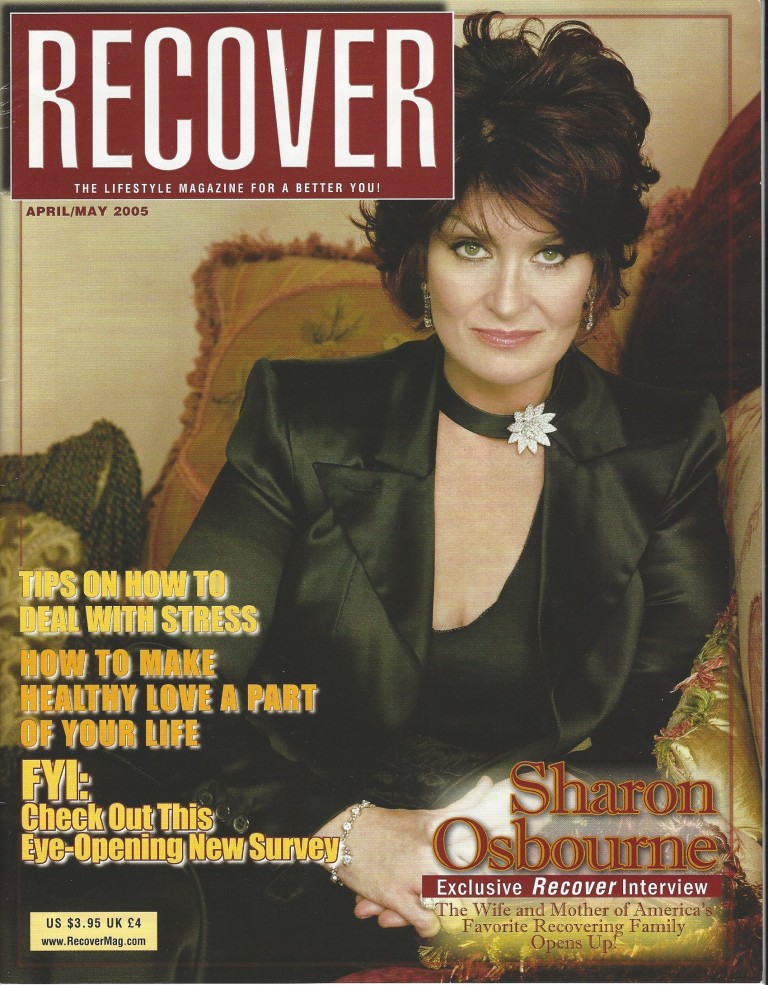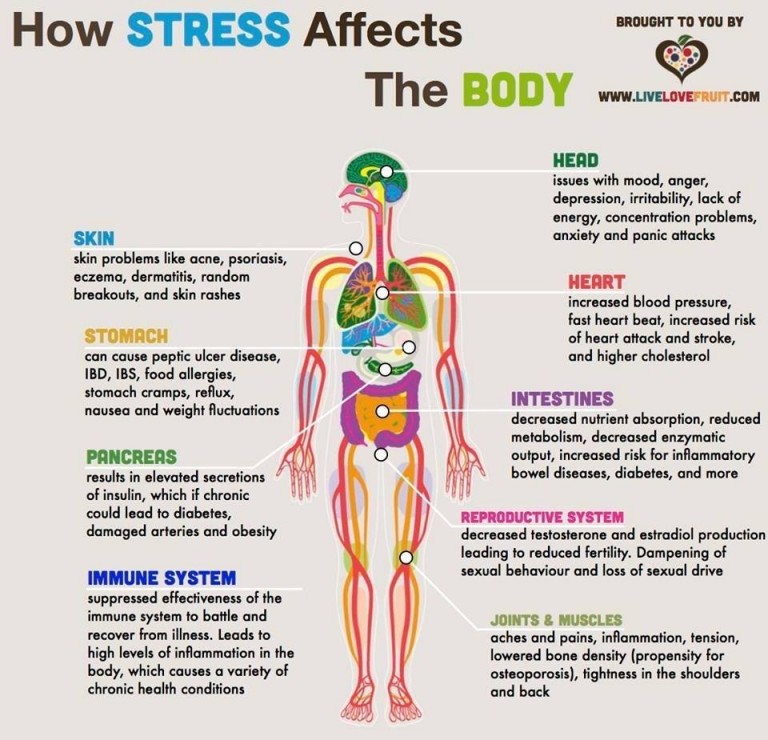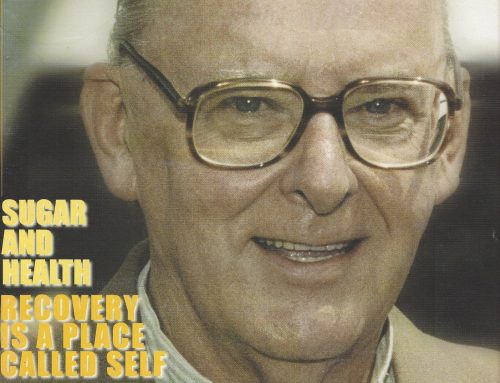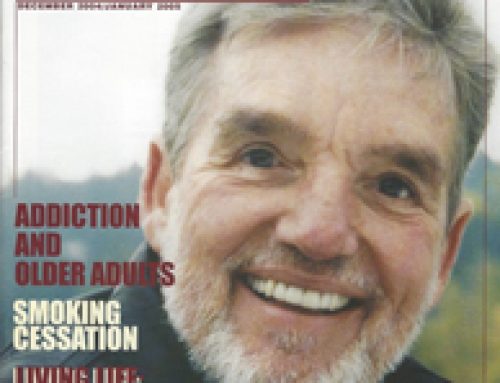 From RECOVER Magazine by Jeffrey Rose, Clinical Hypnotist
From RECOVER Magazine by Jeffrey Rose, Clinical Hypnotist
Unhealthy levels of stress have become an unfortunate part of the modern life most people are living today. A desire to alleviate it has led many people to pursue ways of dealing with stress that are unhealthy. The reader, who is suffering from the effects of stress, may think that many of the successful people around them who are extremely busy and working long hours are somehow more resourceful when faced with the demands of modern life. However, human beings have a natural limit to how much effort and strain they can deal with. I’m sure many of you would be surprised how often many of these, seemingly more capable, people turn out to be dependent on some form of drugs to be able to continue on in life the way they are going. These drugs may be legal pharmaceuticals such as tranquilizers, anti-depression drugs, and also ones designed to deal with anxiety and insomnia. But also, many people take illegal drugs, not just for the physiological and mental enjoyment they might provide, but often to escape from otherwise, unbearable stress. People may actually be self-medicating themselves when they smoke cigarettes, drink alcohol excessively and use marijuana. In addition, because the stress they are subject to may leave them enervated and tired, they may also resort to stimulants, such as nicotine and caffeine, or even illegal drugs such as cocaine, to keep their energy up to be able to do all they want to do in their rushed lives.
The stress response as an adaptation that allows one to deal with an emergency situation is of great value. The flight or fight response to an imminent danger is the original form of physiological response to the stress of a threat to our survival. Hormones are released within the body such as adrenaline to help us respond by increasing our heart rate and raising our blood pressure by constricting our blood vessels. This allows us to get more blood to muscles that might be necessary for our survival. The muscles also tense to be ready for action. Other hormones signal for the release of cortisol which allows more blood sugar to be available for any fight or evasive retreat that is called for. However, to have the body remain in this emergency physiological state for long periods of time is extremely mentally uncomfortable and physiologically unhealthy. Unfortunately, this is exactly what occurs from the experience of stress in our modern life.Stress can lead to troubled sleep and insomnia and also interfere with normal sexual function. It can affect concentration and memory. It not only leads to muscle tension throughout the body, but this muscle tension can lead to serious tension headaches.
Among the other negative things that occur, our blood pressure remains heightened and cortisol, unhealthy to the body in sustained amounts, continues to flow into our body. The release of cortisol, a major stress hormone, appears to promote the formation of fat around the abdomen, an area which is considered the most unhealthy place to store fat.
And the psychological nature of stress may be one of the key reasons some people become and stay fat. Sugar and blood glucose raising foods which act like sugar, such as bread, bagels, pasta and white potatoes, increase the glucose going to the brain, which makes us feel better. But they also generate a lot in insulin which then withdraws the glucose from the blood, and makes us feel down all over again, creating an unhealthy mood cycle that leads to our using these same foods again, and putting on weight (in the short term). In addition, these foods stimulate the production of serotonin which relieves stress and anxiety by putting our minds in a more relaxed and peaceful state, another reason we crave them when stressed and put on weight.
People can be subject to these stress conditions in ways that they fully realize, or, for some, they can remain unaware of just how much stress they are being subjected to, and continue on as they are going until their true condition is finally reflected in some serious health condition. The fact is, even low levels of stress, if they are chronic, can have serious negative effects on one’s life.
 Individuals who are self-employed or their own bosses can experience ongoing stress because of the demands they place upon themselves. On the other hand, the typical worker may experience stress for number of reasons. They may be subject to pressure because of the complexity and time constraints of their work. The regular job itself may be structured with deadlines or amounts of work that are very demanding. This may occur sometimes in a company that wishes to be more profitable by reducing their workforce, and then unreasonably asks the remaining workers to increase their own load of work, to maintain the same overall level of productivity. Another cause of stress may be that a worker is subject to a poorly skilled boss who is unable to make clear what is expected of him, or relates by bullying and harassing the individual. A key psychological cause of stress on a job is a feeling that one has little power or influence over one’s working life. Employers should definitely interest themselves in becoming aware of reducing stress in the workplace as stress can seriously reduce a worker’s effectiveness. His concentration and memory may become impaired and he may experience debilitating sleep disruptions with an increase of danger from accidents both in and out of workplace. Overall, his potential for developing health problems increases considerably. And, of course, in one’s social life, ongoing stress may be caused by a family illness or death, or social strife within a family or other social relations. Personal financial problems can also be a significant source of stress.
Individuals who are self-employed or their own bosses can experience ongoing stress because of the demands they place upon themselves. On the other hand, the typical worker may experience stress for number of reasons. They may be subject to pressure because of the complexity and time constraints of their work. The regular job itself may be structured with deadlines or amounts of work that are very demanding. This may occur sometimes in a company that wishes to be more profitable by reducing their workforce, and then unreasonably asks the remaining workers to increase their own load of work, to maintain the same overall level of productivity. Another cause of stress may be that a worker is subject to a poorly skilled boss who is unable to make clear what is expected of him, or relates by bullying and harassing the individual. A key psychological cause of stress on a job is a feeling that one has little power or influence over one’s working life. Employers should definitely interest themselves in becoming aware of reducing stress in the workplace as stress can seriously reduce a worker’s effectiveness. His concentration and memory may become impaired and he may experience debilitating sleep disruptions with an increase of danger from accidents both in and out of workplace. Overall, his potential for developing health problems increases considerably. And, of course, in one’s social life, ongoing stress may be caused by a family illness or death, or social strife within a family or other social relations. Personal financial problems can also be a significant source of stress.
Just the demands and strain caused by an overly busy active life in which there just doesn’t seem to be enough time to get everything done, except, maybe, by rushing and hurrying through one’s day, without any real moments of taking your time, or just slowing down completely and relaxing, can create serious ongoing stress for the mind and body.
Ongoing stress will sap your energy and debilitate you so that you may resort to taking in more caffeine from different sources, as it is found not only coffee, but in many popular sodas and even some teas. Caffeine stimulates the production of adrenaline, and may give you a sense of having more energy. In the end this will prove counterproductive as adrenaline is a stress hormone, and even though you may feel more energy, you will be experiencing even more of the effects of stress such as increased heart rate and blood pressure. Anyone suffering from stress needs to keep caffeine out of their life. Overall caffeine works against the relaxation you are in need of to counter and diminish your psychological and physiological stressed state.
Fortunately, there are many effective ways to reduce stress within our everyday life at work and at home. Some of them can be done by yourself and with a little practice they can be instrumental in helping you avoid any long term detrimental effects that might have otherwise have occurred from your ongoing stressful situations.
Hypnosis is one modality people can use to relieve their stress. Since our beliefs and attitudes can influence how capable and confident we feel about ourselves, they can influence how stressed we feel when we have to deal with life’s challenges. With hypnosis people can change the underlying attitudes and beliefs in their subconscious mind, and meet life’s challenges in a more resourceful, less stressful way. In addition, hypnosis can be used to help people experience and incorporate stress reducing, relaxing mental and physical states into their everyday lives. For all these reasons hypnosis is the easiest and quickest way to alleviate stress and live a healthier, relaxing life.
However, there are many ways the individual can get significant relief from stress by themselves. The key point to understand in the relief of stress is that relaxation is incompatible with the stress state, so that if you can generate relaxation in some way, you will automatically be countering the stress in your life.
Meditation is one of the key ways people can reduce stress and introduce a feeling of complete mental and physical relaxation into their lives, one which can continue to provide help in dealing with any stress experienced throughout the rest of the day. I want to say here, that, because of meditation’s connection with Eastern religions, many of you might feel that it is not in consonance with the life you are leading. The truth is, meditation is a valuable technique that is not of itself religious, but has simply been incorporated by various religions for their own purposes. It can be utilized in a completely non-religious way to achieve deep states of relaxation and great stress relief. Those suffering from serious stress should not hesitate to make use of this valuable resource for reducing stress in their lives.
The basic form of meditation is simply to focus your attention on one simple and relaxing thing. This relaxes the mind and keeps it from dwelling on stress generating thought. As a result the mind gets relief and with the mind more relaxed the body follows. To do it, you should be in a comfortable position. Some people meditate in the so-called lotus position, you may have seen on yoga magazines. But this is not at all necessary. You can just sit in a comfortable chair or lie on your bed. You may chose to meditate for any period, but 20 to 30 minutes would be a good period to aim for. If you are worried you will lose track of time, you can use an alarm, preferably a gentle one, like a radio with music coming on or another softer choice of sound.
Once you are ready, you can choose how to concentrate your attention. One very popular way is to concentrate on your breathing. Pay attention to your slow breathing in and out. Here I want to point out, controlling your breathing, all by itself, can be a powerful influence on your stress and significantly reduce it. When we are experiencing stress we breathe shallow breaths up in our chest. When we are relaxed we breathe slow, deep breaths by expanding our lower stomach area. Just by imitating the physiological states of relaxation, by controlling our breathing consciously to be like that when we experience relaxation, we induce our minds and bodies to experience relaxation. Thus, we can note here that breathing to promote relaxation, even without the act of meditation is a valuable resource for reducing stress. The beauty of using breathing for this purpose is that it can be employed wherever you are, even at work. You can just stop for a few moments and take a few slow, deep diaphragm breaths and you will be able to counter any stress you experiencing.
Another way you can meditate is to concentrate on looking at an object. You can do this with anything, but it can be more relaxing to choose a flower or an attractive piece of glass or pottery or a candle with a flame. Observe it carefully, noticing everything about it. Of course, this can be enhanced by breathing in the relaxing way at the same time, even if your attention is no longer on your breathing, but on the object. Some people can become very relaxed by focusing on a sound repeated silently in your mind. It can be short word; it can be a number, like one, or the word “easy,”, or the traditional sound used in religion, Om. You can even make up your own! Today many people have sound machines, and some of you may prefer to sit quietly with all your attention on listening to the sounds generated by your machine. You could listen to waves on a beach, or crickets at night, or a downpour in a rain forest. Many people get relaxed from just listening to such sounds without using them for meditation. There are also many meditative recordings designed to initiate relaxation in the person. Perhaps one of these will prove to your liking and be very beneficial to you. While you are meditating in the way you have chosen, some other thoughts may enter your mind, do not fight them, just gently turn your attention back to what you were focusing on.
Using imagery is another way to relieve stress that people find extremely pleasant. You can either use a remembered peaceful, relaxing scene you have experienced or make up an entirely imaginary one. As you create this image in your mind make sure to involve as many senses as possible. For example, an image of a beach should involve seeing the waves and the blue sky with some lovely clouds in it; while at the same time you should be hearing the sounds of the waves and smelling the water and sand, feeling the warmth of the sun and a light breeze on your body.
Other imagery might involve seeing stress flow out of your body, or things you are concerned with moving away from you into the distance. You can also see waves of relaxation flowing down over your body and these waves can move in time with your breathing. You should feel how the relaxation is moving down your body with each new wave. Once you have done this regularly, wherever you are, you can stop for a while, even for just a minute, or as long as you are able, and imagine you are in your relaxing place or the waves of relaxation are flowing over you while you breathe in the relaxation inducing manner. You can also do deep breathing while imagining the stress flowing out of your body with each breath you exhale.
Another very effective way to reduce stress is by practicing muscle relaxation. Remember that relaxation is incompatible with the stress state, so that if you can generate relaxation in some way, you will automatically be countering the stress in your life. Relaxed muscles are the opposite of the tensed muscles experienced with stress. If you learn to relax your muscles, you will be in a more relaxed state and your stress will be reduced.
Many people use what is called progressive muscle relaxation. You should consult with your doctor before using this method if you have back problems or muscle spasms, or any other condition you think might lead to injury from this program. Starting either from the top part of your body or at your feet, you tighten then relax each set of muscles. For example, you might tighten your fists and hold this for about five seconds, fully experiencing the tenseness of the muscles used. Then you release this contraction and completely relax the muscles. Breathe out as you do so. It is important to focus your attention on the different feelings of tension and total relaxation. Take your time to fully experience the feelings of relaxation in the muscles. You can repeat doing this with each muscle group, feeling deeper relaxation each time as you release the contraction. Be careful when you contract the muscles in your feet and your back; do this deliberately, but gently and carefully. Practice throughout your body for awhile then you are ready for the next stage. Now you will tense all the muscles of your body at once and then release them, while saying a word, like “relax” or a phrase, like “let go,” out loud or silently in your mind. Make sure you keep breathing in a relaxing manner as you are doing all these exercises. Never hold your breath. If practiced regularly, you can reach a point where all you have to do is feel in your body where you are experiencing muscle tension, think of that muscle group in your mind, say that word or phrase, and while you are in that stressful situation, you will experience relaxation.
Exercise is another very effective way to relieve stress. It releases tension in the muscles which leads to a state of relaxation when completed. It improves blood flow to your brain and throughout your body to bring more nutrients and oxygen to these areas and remove toxins and other waste products from them too. In addition, a body in better physical condition is better able to deal with the actual physiological stresses created by being in stress creating situations. Exercising results in an improved mood. This may result from physiological changes within your body, but there is another reason as well. While you are exercising, especially if you are doing some sport, you are focusing on other things rather then the concerns which were causing you stress. Exercise will also help you to sleep soundly, and getting enough healthy sleep is an important part of combating stress. You should examine your sleep habits and make sure you are getting enough sleep each night. Many people do not get enough sleep and this contributes to the stress they experience trying to cope with things during their waking life. If you are one of the individuals who do not get plentiful sleep, you should seriously consider rearranging your life to get more sleep. Make sure you consult your doctor before beginning any new exercise program. There are some forms of exercise that combine meditation, breathing and physical movement. For example, you might wish to try Tai Chi or Yoga.
Remember, the best stress reduction system is the one that works for you and leads to less stress and more relaxation. Often people can improve their overall results by just adding more pleasant enjoyable moments during the day. Listening to your favorite music or reading a good book are some things you may have neglected to include in your life recently. Taking the time to enjoy good food, and taking a brisk walk can all add up to less stress and a more enjoyable relaxing existence. A lot of little things can add up and change the tone of your life toward the more positive. One of these things, often overlooked, is to include more humor in your life. This might include seeing more comedies in the movies, and amusing shows on TV, for example, going to the Comedy Channel regularly, or reading your favorite comedian’s latest book. It is now accepted that humor and laughter can significantly lower stress and have very positive mental and physiological effects on your health.
You must experiment and see what works best for you. Often it may actually be a combination of things that will best lead to you a less stressful, more relaxing and enjoyable life.
Remember, the best stress reduction system is the one that works for you and leads to less stress and more relaxation. Often people can improve their overall results by just adding more pleasant enjoyable moments during the day. Listening to your favorite music or reading a good book are some things you may have neglected to include in your life recently. Taking the time to enjoy good food, and taking a brisk walk can all add up to less stress and a more enjoyable relaxing existence. A lot of little things can add up and change the tone of your life toward the more positive. One of these things, often overlooked, is to include more humor in your life. This might include seeing more comedies in the movies, and amusing shows on TV, for example, going to the Comedy Channel regularly, or reading your favorite comedian’s latest book. It is now accepted that humor and laughter can significantly lower stress and have very positive mental and physiological effects on your health.
You must experiment and see what works best for you. Often it may actually be a combination of things that will best lead to you a less stressful, more relaxing and enjoyable life.






